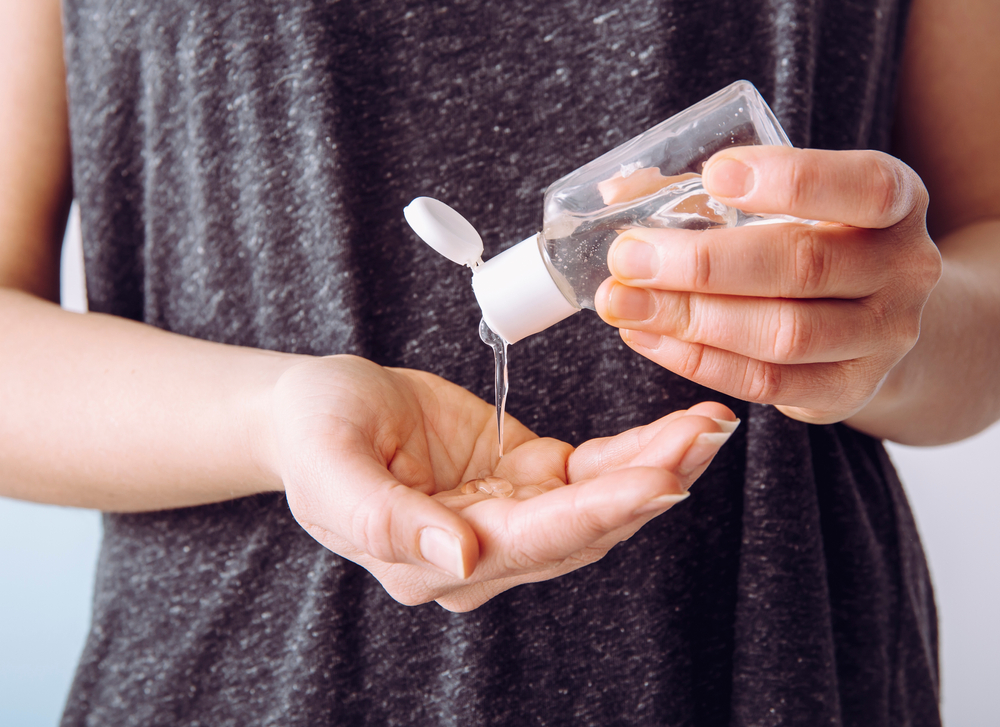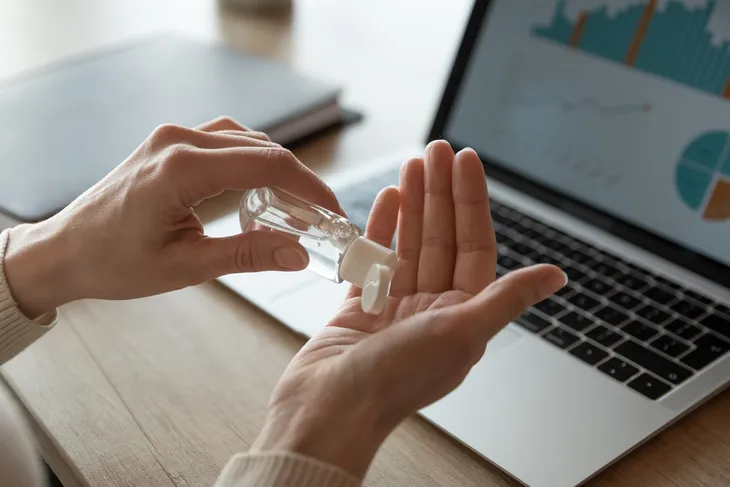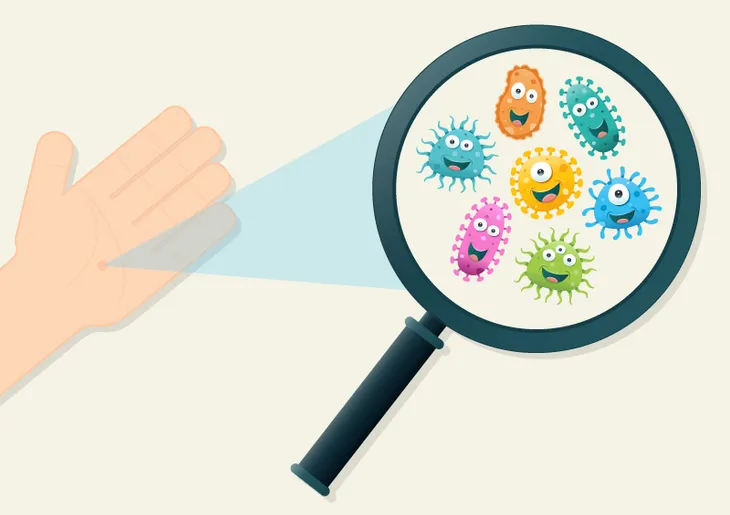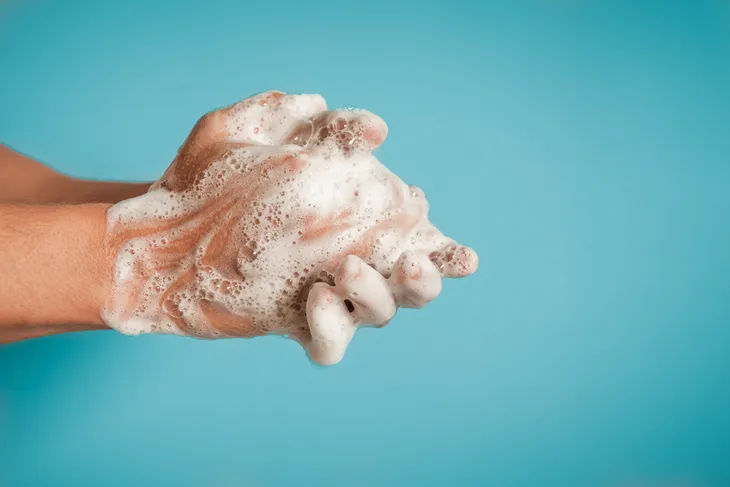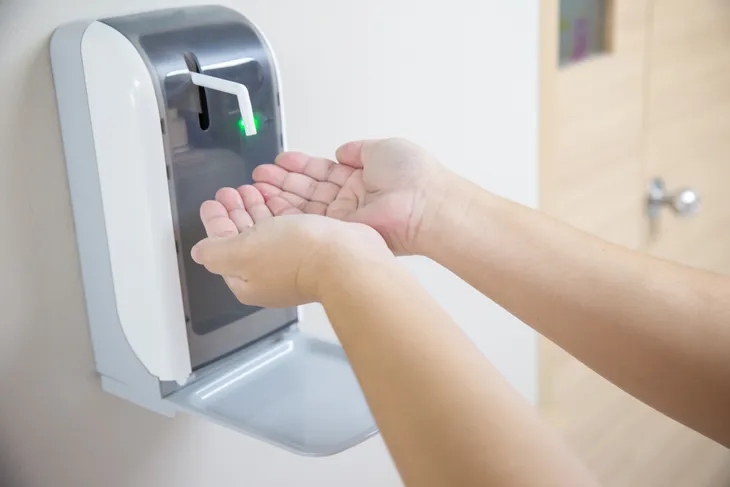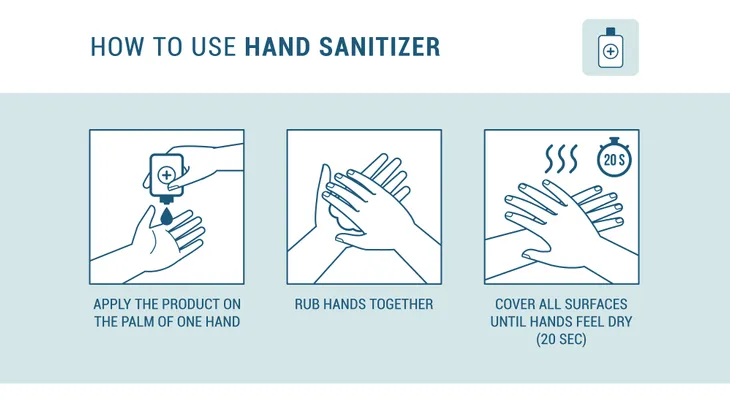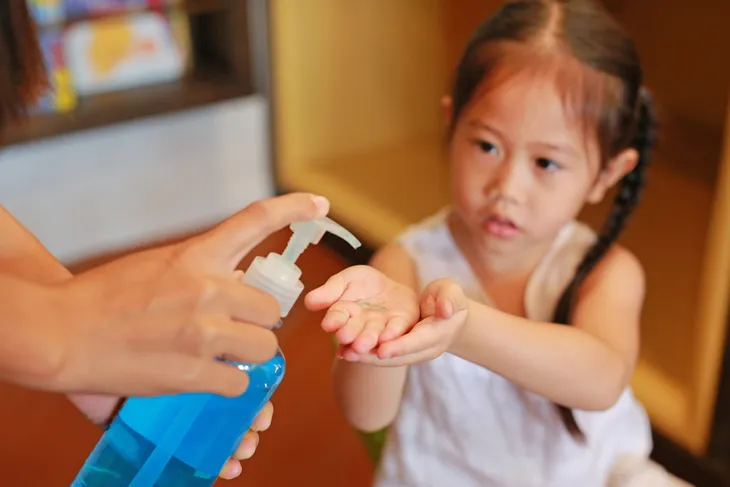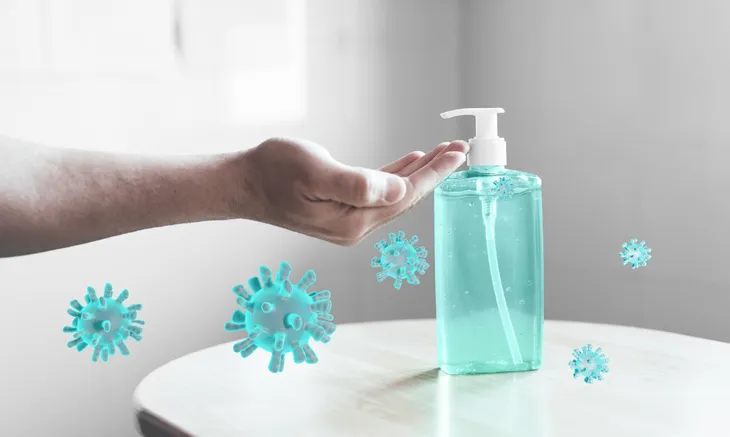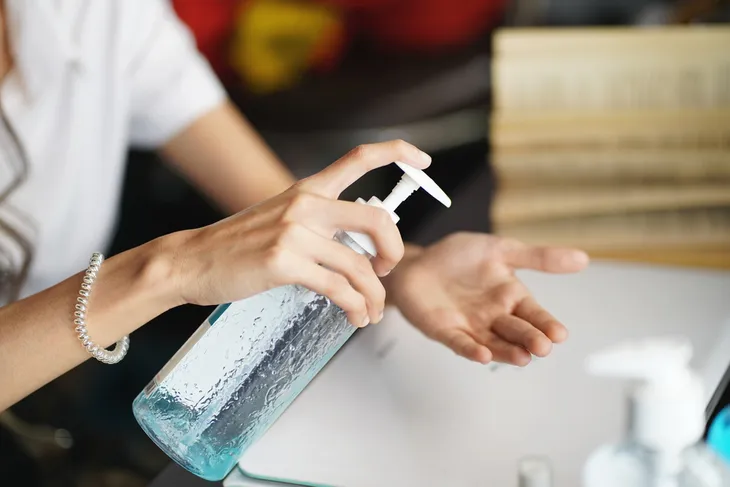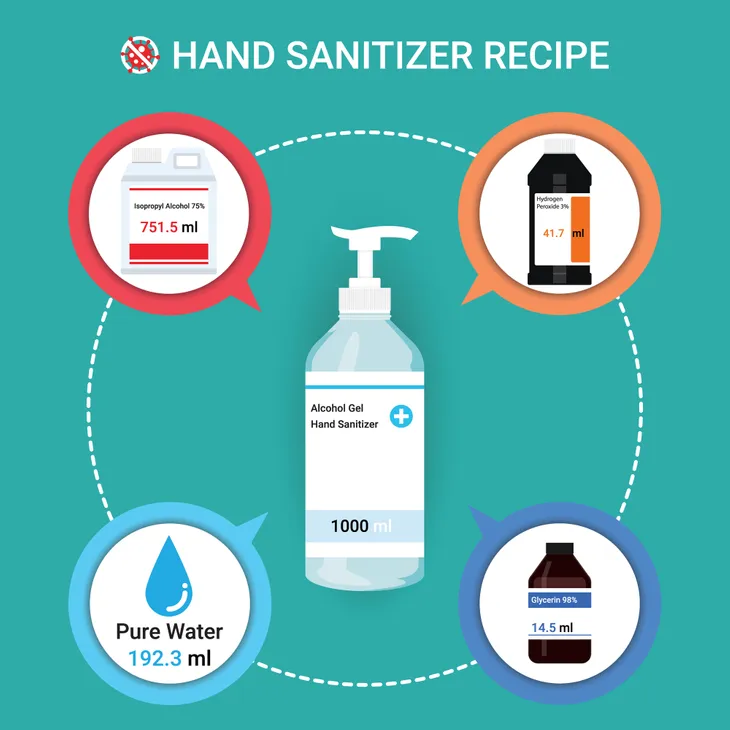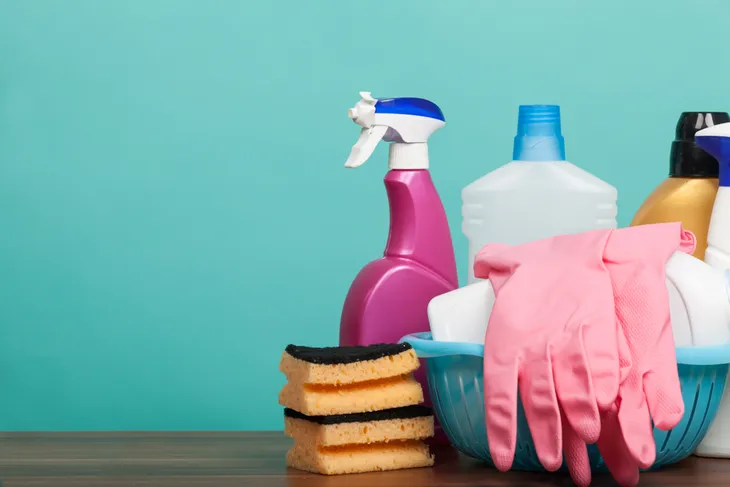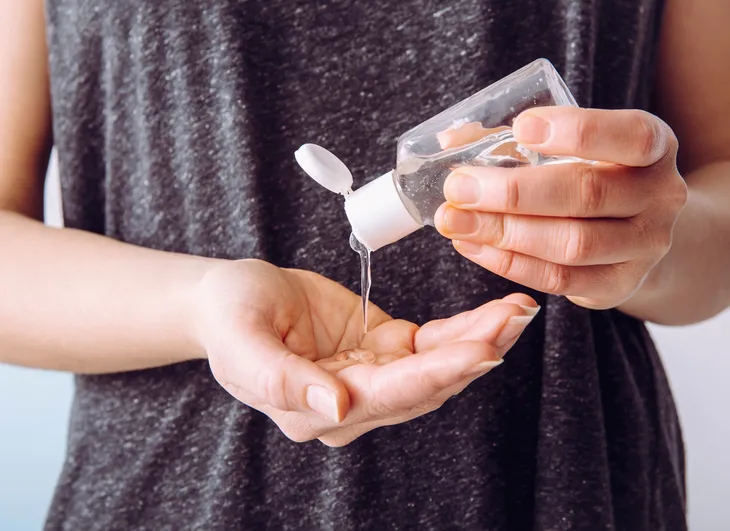Hand sanitizer gained popularity over the years because of its convenience and effectiveness. Drop a travel sized bottle into your bag or car and you can have clean hands any time. It seems like a no-brainer for most people who are out and about and want to keep their hands clean and free from bacteria and viruses.
But here is the surprising part. Hand sanitizer doesn’t always beat out hand washing and shouldn’t be used as a substitute. There is a lot of information out there about hand sanitizer that most people don’t know. In this article, we’ll cover everything you ever wanted to know about hand sanitizer. How effective it is at killing germs, how long it lasts, and all of its limitations.
What Makes Hand Sanitizer Effective
Alcohol is the key ingredient in hand sanitizer that makes it effective. Make sure that your hand sanitizer has at least 60-percent alcohol as recommended by the CDC. Alcohol has been known for its cleaning properties for a long time and is still one of the best disinfectants that is readily available to just about anyone.
While shopping for hand sanitizer, be sure to check the ingredient label on the bottle. Non-alcohol hand sanitizers or those that contain less than 60-percent may not kill both bacteria and viruses. Instead, they only reduce the growth of the germs or just won’t kill enough different kinds of germs to make it worth buying. Some are formulated to only kill bacteria, where others can kill both. Be diligent and do your research before buying!
Hand Sanitizer Doesn’t Kill All Germs
Hand sanitizer is effective at killing almost all kinds of bacteria but there are three major types that only soap and water can get rid of, Cryptosporidium, norovirus, and Clostridium difficile says the CDC. Realizing that hand sanitizer won’t kill every bad germ out there, including ones that can make you really sick, you might want to reach for the soap and water more often.
Of the three, norovirus is the one that you will most likely come in contact with on a somewhat regular basis. Norovirus is one of the viruses that can cause the stomach bug and all the rather unpleasant symptoms that come with it. Cryptosporidium causes significant gastrointestinal upset and Clostridium difficile is typically a hospital acquired infection that also causes gastrointestinal upset.
Sometimes Soap and Water Is Better
Hand sanitizer works by killing the germs on your hands. Soap and water work differently. The suds of soap and water wash germs off your hands, removing them instead of working as a disinfectant. When given the option, you should choose to use soap and water instead of hand sanitizer.
Soap and water should always be used when you have visibly dirty hands. Hand sanitizers cannot wash away the dirt the same way soap and water does. The CDC confirms this by reporting, “when hands are heavily soiled or greasy, hand sanitizers may not work well. Handwashing with soap and water is recommended in such circumstances.”
It Does Not Remove All Harmful Substances
Hand sanitizers might not remove harmful chemicals, like heavy metals, from your hands. This goes back to the point we talked about, soap and water wash away whereas hand sanitizer just kills. If you have touched harmful chemicals or anything along those lines you’ll want to use soap and water to clean your hands. Hand sanitizer just won’t do the job.
There was a study reported by the CDC where, “people who reported using hand sanitizer to clean hands had increased levels of pesticides in their bodies.” This could be due to multiple factors including not washing the pesticides off of your hands after using them. Like we’ve said before if you have soap and water available make that your first line of defense for clean hands.
It Won’t Work if You Don’t Use it Correctly
How effective hand sanitizer is totally dependent on the user and if they use it correctly. You need to use the correct amount (look on the bottle of hand sanitizer you are using to find the exact amount for your product) and apply it the right way in order to kill the bacteria and viruses on your hands.
The method for applying hand sanitizer correctly has been broken down into multiple, complex steps but the CDC found that a simplified procedure was just as effective as a complex one. So to make a long story short, cover all the surfaces of your hands and rub the hand sanitizer until it is dry. Make sure to get the back of your hands and in between your fingers, which are the areas that tend to get missed.
Hand Sanitizer Can Be Dangerous
Drinking hand sanitizer doesn’t exactly sound appealing but unfortunately to some small children, they are attracted to the bright bottles, scents, and fun packaging. According to the CDC, “from 2011-2015, U.S. poison control centers received nearly 85,000 calls about hand sanitizer exposures among children.” Because of kids’ small body size, just a little amount of ingested hand sanitizer can have serious health effects.
Alcohol based hand sanitizer has ethyl alcohol (ethanol) and can cause alcohol poisoning when swallowed. Make sure to keep hand sanitizer out of the reach of children and to use child-resistant caps to prevent accidental ingestion. If you think your child has swallowed hand sanitizer call your poison control center or doctor right away.
Hand Sanitizer Expiration
Turns out hand sanitizer doesn’t exactly expire according to Live Science. Bottles of hand sanitizer will likely have an expiration date because it is regulated by the FDA, which requires expirations among other things on the packaging. The source says, “ the expiration dates is supposed to be the last date at which the product contains the ingredients in the amount specified on the label.” Alcohol is shelf-stable, meaning that when kept sealed at room temperature it will keep the same concentration for a long time.
The concern comes when the alcohol evaporates. When you have a large bottle of hand sanitizer that is frequently opened the alcohol can escape and the concentration can diminish over time. But if you keep your hand sanitizer closed for the majority of the time and at room temperature you will likely maintain its concentration for a very long time.
Hand Sanitizer Doesn’t Last as Long as You Might Think
Take a guess at how long hand sanitizer works? It’s probably a lot less than you think reports the Reader’s Digest. When you put it on you kill the vast majority of germs on your hands but as soon as you touch something or someone you may have just picked up new bacteria or viruses. So if you really want clean hands you need to use hand sanitizer after you touch something every single time.
“Alcohol sanitizers last only a minute or two and must be reapplied when recontamination occurs,” says Philip Tierno Jr., PhD, director of clinical microbiology and immunology at NYU Langone Medical Center. Most people believe hand sanitizer works for quite a while after it’s used but if you’re walking around and shake someone’s hand or touch a railing at the subway you won’t be protected unless you go use soap and water to wash your hands or reapply hand sanitizer.
Hand Sanitizer is a Drug
Most people consider drugs to be prescription pills, illicit drugs, or even medications like ibuprofen. But according to the FDA, “hand sanitizers are regulated as over-the-counter (non-prescription) drugs by the U.S. Food and Drug Administration.” Because of its regulations, the FDA help ensure you are getting quality hand sanitizer by enforcing certain restrictions on ingredients.
If the FDA takes hand sanitizer seriously, then you should too. We’ve talked about the dangers of drinking hand sanitizer, especially for children. If you have sensitive skin or open sores on your skin you may need to opt for soap and water. The drying effects of hand sanitizer can make some skin conditions worse and burn when put on open spots.
Cleaning Products Can’t Sub for Hand Sanitizer
If you’ve looked at your cleaning supplies then you might have noticed that it contains some of the same ingredients as hand sanitizer. But according to the FDA, these products can’t become a substitute for hand sanitizer because they are made for hard surfaces. Cleaning products contain different concentrations of disinfectants and can also have chemicals that can seriously irritate or damage your skin.
Despite the FDA’s recommendations people still use bleach and other cleaning products to wash their food or even their hands. The AARP described, “a report released by the CDC in early June found that approximately one-third of adult respondents in a recent survey engaged in non recommended high-risk practices with cleaning supplies…”
Homemade Hand Sanitizer
Making your own hand sanitizer sounds easy and kind of tempting. The ingredient list is rather short and you might even hand most of the supplies on hand. But the FDA strongly recommends against it. The agency says if it’s made wrong it can be ineffective and that their have been reports of skin burns from homemade hand sanitizer.
Leave hand sanitizer making to the experts. Or just use soap and water if you don’t have any on hand. Soap and water are as effective or perhaps more effective than hand sanitizers in certain situations. You don’t want to get a skin burn or make a product that ends up not being effective when you need it most.
